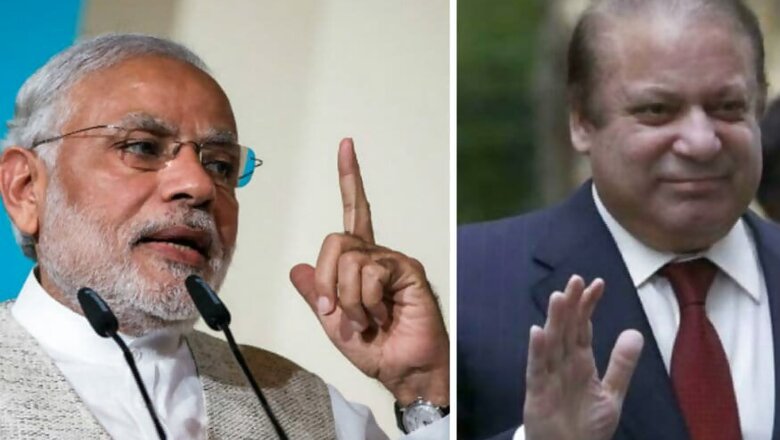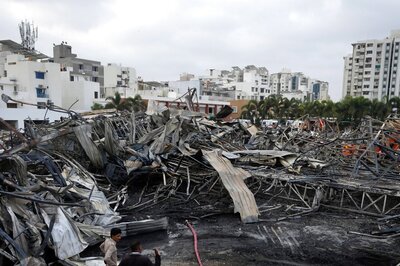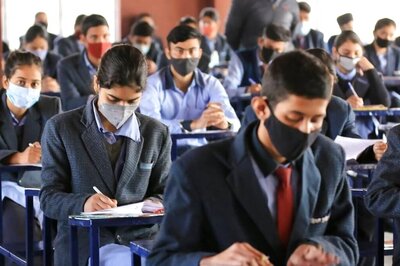
views
New Delhi: India on Monday weighed its options against Pakistan in the wake of the Uri terror attack, with the army vowing to pick its own "time and place" to retaliate and the political leadership authorising a global diplomatic blitz aimed at isolating Islamabad as a hub of terrorism.
On a day that saw emotions running high over the death of 18 soldiers in Sunday's attack who were given farewell with military honours in various parts of the country, Prime Minister Narendra Modi summoned a meeting of senior ministers and military and security advisers to formulate an appropriate response.
Meanwhile, the Director General Military Operation (DGMO), Lt. Gen. Ranbir Singh, told reporters that the army found more articles from the four attackers who were killed at the Uri army camp in Jammu and Kashmir close to the Line of Control (LoC) -- a de facto border with Pakistan.
The evidence indicated that the militants came from Pakistan, he said.
Earlier, India has blamed Pakistan-based Jaish-e-Mohammed for the attack.
The group, which has not claimed responsibility, was also accused of mounting the January attack on an Indian Air Force base in Pathankot that left seven soldiers dead.
Among the arms and ammunition recovered in Uri were 39 UBGL grenades, five hand grenades, two radio sets, two GPS devices, two maps and "large quantities of food and medicines with Pakistani markings on them", the DGMO said.
Lt. Gen. Singh said there had been 17 infiltration bids from across the border in 2016. They were foiled, leaving 110 terrorists dead.
"This indicates a desperate attempt from across the border to push infiltrators and create disturbances in India.
We reserve the right to respond at a place and time of our choosing. We have the desired capability to reply to such a blatant act of violence in a manner as deemed appropriate by us."
It was amid pressure within the ruling Bharatiya Janata Party (BJP) to "teach a lesson" to Pakistan -- with senior party strategist Ram Madhav demanding "for one tooth, a complete jaw" -- that Modi chaired the high-level meeting in New Delhi to review the situation.
Informed sources said that apart from the diplomatic offensive at major global fora -- including the upcoming UN General Assembly -- the meeting considered several other options, but these were likely to be measured and well thought-out.
The sources said Modi sought all evidence to expose Pakistan at international fora for their involvement in the attack.
The meeting also discussed Modi's proposed visit to Pakistan in November for a Saarc summit. The option of the Islamabad trip was left open as any decision would be taken on the basis of the bilateral situation then, the sources said.
The high-level meeting came shortly after Home Minister Rajnath Singh reviewed the situation along the border and the LoC in Jammu and Kashmir.
Patrols on the borders were increased and frontier districts in various states were put on a high alert. India and Pakistan are currently observing a 2003 ceasefire along the borders and the LoC, which has largely stayed despite violations.
Pakistan Army Chief General Raheel Sharif told a Corps Commanders conference in Rawalpindi his forces were "fully prepared to respond to an entire spectrum of direct and indirect threat".
"Pakistan's armed forces ... will thwart any sinister design against the integrity and sovereignty of Pakistan."
In New Delhi, Minister of State for Home Kiren Rijiju told reporters that India was not concerned about Pakistani denials.
"Everything is in front of the people. We must not give much attention to Pakistan's reaction. We will take our steps carefully," Rijiju said.
The terror attack drew condemnation from around the world, including Russia, France, Canada, UN and China.
UN Secretary-General Ban Ki-moon expressed hope that the perpetrators of the Uri attack will be brought to justice and all stakeholders in the region will meet their responsibilities to maintain peace and stability.
While condemning the terror act, China said it was concerned over the "rising temperatures" in its aftermath.
Beijing also asked India and Pakistan to resolve their differences through dialogue.
"China opposes and strongly condemns all forms of terrorism. We are concerned about this escalation and rising temperatures surrounding the Kashmir situation," Chinese Foreign Ministry spokesman Lu Kang said.
On Sunday, the US had expressed strong condemnation of the terror attack.




















Comments
0 comment